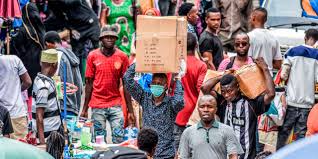Kinshasa, Sept. 6, 2025 – The United Nations has condemned serious human rights abuses committed in eastern Democratic Republic of Congo (DRC) over the past year, warning that both Congo’s army and Rwanda-backed M23 rebels bear responsibility.
A new UN fact-finding report documented crimes including gang rape, sexual slavery, torture, killings of civilians, enforced disappearances, and forced recruitment. The investigation covered the period from March to August 2025, during which the conflict escalated after M23 fighters seized the strategic city of Goma.
UN spokesperson Ravina Shamdasani, quoting High Commissioner for Human Rights Volker Türk, described the atrocities as “horrific” and said the systematic abuse of civilians shows a failure by those in power to uphold their responsibilities.
The conflict has so far killed around 3,000 people and displaced thousands, raising fears of a wider regional war and creating one of the world’s most severe humanitarian crises. Reports indicate a recent surge in sexual violence, especially against women and girls.
The report highlights that M23 rebels carried out repeated acts of rape and physical torture, often as a deliberate tactic to degrade and punish victims. Meanwhile, Congo’s armed forces, known as FARDC, along with allied groups such as Wazalendo, have also committed killings, sexual assaults, and looting.
The UN notes that these violations are systematic and widespread, not isolated incidents. Many attacks were carried out by large groups across multiple localities, following recurring patterns.
“The governments of both the DRC and Rwanda are responsible,” the report states, citing their support for armed groups with known histories of serious abuses and their failure to protect civilians or enforce international humanitarian law.
The UN Human Rights Council is expected to discuss the report in its upcoming month-long session, aiming to hold perpetrators accountable and push for stronger measures to protect civilians.
As the conflict continues, humanitarian agencies warn of urgent needs for food, shelter, and medical aid for affected populations.



